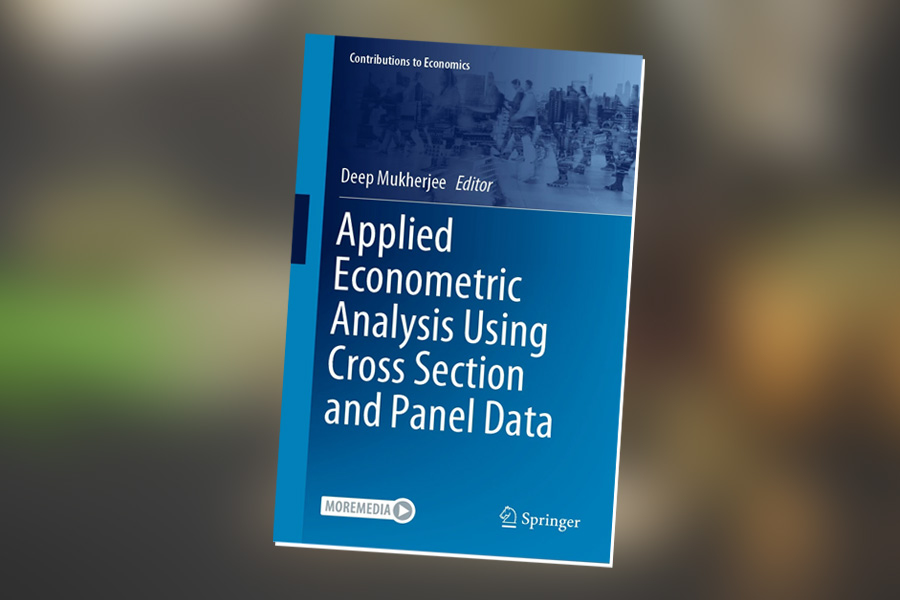
The study shows that past use of marijuana, belief about legalization and political partisanship are important factors that shape public opinion.
Authors
Mohit Batham, Walmart GTS, Bengaluru, India.
Soudeh Mirghasemi, Department of Economics, Hofstra University, Hempstead, USA.
Manini Ojha, Associate Professor, Jindal School of Government and Public Policy, O.P. Jindal Global University, Sonipat, Haryana, India.
Mohammad Arshad Rahman, Department of Economic Sciences, Indian Institute of Technology Kanpur, Kanpur, India.
Summary
This chapter presents an overview of a specific form of limited dependent variable models, namely, discrete choice models, where the dependent (response or outcome) variable takes values which are discrete and inherently ordered. Within this setting, the dependent variable may take only two values (such as 0 and 1) giving rise to binary models (e.g., probit and logit) or more than two values (say, where J is a small integer) giving rise to ordinal models (e.g., ordinal probit and ordinal logit). In these models, the primary goal is to model the probability of responses/outcomes conditional on the covariates.
We connect the outcomes of a discrete choice model to the random utility framework in economics, discuss estimation techniques, and present the calculation of covariate effects and measures to assess model fitting. Some recent advances in discrete data modeling are also discussed. Following the theoretical overview, we utilize the binary and ordinal models to analyze public opinion on marijuana legalization and the extent of legalization in the United States. All computations are done in MATLAB. We obtain several interesting results including that past use of marijuana, belief about legalization and political partisanship are important factors that shape public opinion.
Published in: Mukherjee, D. (eds) Applied Econometric Analysis Using Cross Section and Panel Data. Contributions to Economics. Springer, Singapore.
To read the full chapter, please click here.

